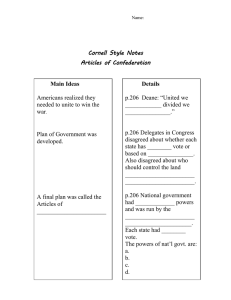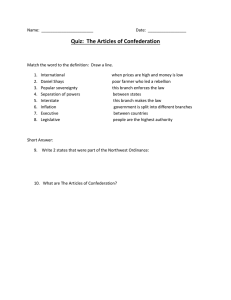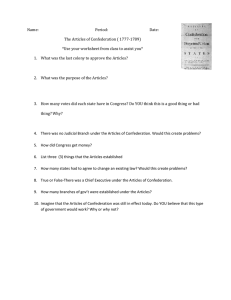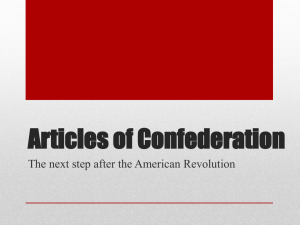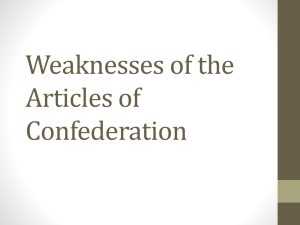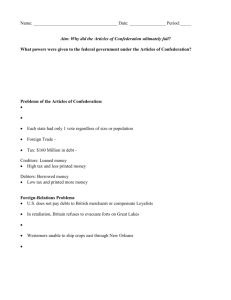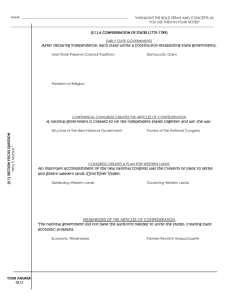Chapter 5 - Section 1 Experimenting with Confederation
advertisement
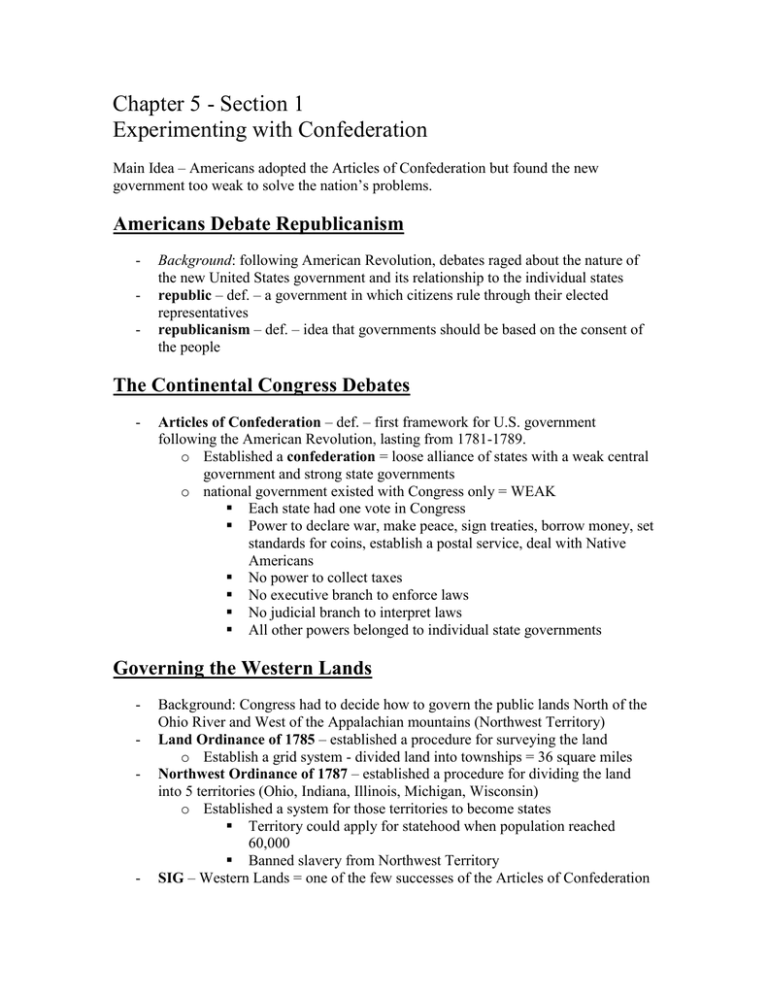
Chapter 5 - Section 1 Experimenting with Confederation Main Idea – Americans adopted the Articles of Confederation but found the new government too weak to solve the nation’s problems. Americans Debate Republicanism - Background: following American Revolution, debates raged about the nature of the new United States government and its relationship to the individual states republic – def. – a government in which citizens rule through their elected representatives republicanism – def. – idea that governments should be based on the consent of the people The Continental Congress Debates - Articles of Confederation – def. – first framework for U.S. government following the American Revolution, lasting from 1781-1789. o Established a confederation = loose alliance of states with a weak central government and strong state governments o national government existed with Congress only = WEAK Each state had one vote in Congress Power to declare war, make peace, sign treaties, borrow money, set standards for coins, establish a postal service, deal with Native Americans No power to collect taxes No executive branch to enforce laws No judicial branch to interpret laws All other powers belonged to individual state governments Governing the Western Lands - - Background: Congress had to decide how to govern the public lands North of the Ohio River and West of the Appalachian mountains (Northwest Territory) Land Ordinance of 1785 – established a procedure for surveying the land o Establish a grid system - divided land into townships = 36 square miles Northwest Ordinance of 1787 – established a procedure for dividing the land into 5 territories (Ohio, Indiana, Illinois, Michigan, Wisconsin) o Established a system for those territories to become states Territory could apply for statehood when population reached 60,000 Banned slavery from Northwest Territory SIG – Western Lands = one of the few successes of the Articles of Confederation The Confederation Encounters Problems - Political Problems of the Articles of Confederation o Lacked national unity – each state was considered completely independent o Each state had one vote in Congress, regardless of population o Two-thirds majority (9 out of 13 states) needed to pass a law o Unanimous vote necessary (13 out of 13 states) to amend the Articles o No executive branch to enforce laws o No national court system (judicial branch) to interpret laws - Economic Problems of the Articles of Confederation o Huge debt from Revolutionary War owed to foreign nations (ie France) o Congress had no power to tax o Congress printed its own money – “Continental” = worthless o No power to regulate interstate trade - Foreign Policy Problems of the Articles of Confederation o With debts unpaid, British refused to evacuate soldiers from forts around the Great Lakes o Congress had no power to regulate foreign trade Spain closed the Mississippi River to American trade – hurt western farmers

